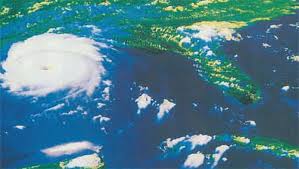
Nature of work
Geographical information systems (GIS) is a fast-growing and important part of a number of businesses. GIS are computerized systems used for the collection, storage, analysis, manipulation and presentation of complex geographical information. Previously, this would have been a combination of electronic versions of traditional paper maps and social and economic data. A geographical information systems officer captures the location of 'assets' such as bridges, street lights, road barriers, flood defenses and so on using GPS tools in the field for private companies, government agencies and local authorities. He/she creates and maintains the structures necessary for GIS data storage, develops the tools for loading/transferring GIS data between different systems. He/she analysis and presents geographical information by creating programs to convert GIS information from one format to another. He/she develops internet applications to present GIS data and tools on corporate websites, and uses tools to join different GIS datasets together and creates new information or investigation patterns. Many of the activities are project- based and involve working with clients to clarify the nature and purpose of the information he/she requires. Environment of work
A typical working day is usually from 8.30am to 3.30 pm but, as with other project-based work, this may vary according to project deadlines. Some geographical information systems (GIS) officer roles may involve significant work for data capture or data validation. After gaining good experience, some GIS officers move into freelance or consultancy work, or advance to GIS manager role. At more junior levels, the role requires close, detailed PC-based work, but may also involve a lot of liaising with colleagues and contacts outside the organization. A GIS officer may be involved in managing multidisciplinary work teams, where a member has very different skills and experience. This may be challenging but also very stimulating. Travel within a working day depends on how much client and customer liaison work the officer is involved in. With some posts, this may be quite frequent. Absence from home overnight is likely in some posts. Overseas contracts are possible particularly in the private/consultancy sector, but travel is infrequent. Professional life
As there is no typical route for career development, career progression depends on where he/she starts. In geographical information systems (GIS), teams are often made up of a range of professionals including cartographers, computer programmers, data analysts, information officers and project managers. With so many areas to choose from, within both the private and the public sector, successful career development depends on clarifying his/her own particular interests. It is helpful to be aware that if he/she progresses towards GIS management, his/her role is likely to shift balance from specific GIS activities to more managerial duties. He/she may be able to move into other project management work outside GIS. Some people with a GIS background go on to set up his/her own consultancies. There are also opportunities to work overseas once he/she has gained experience. In addition, many people who study geography and who work with GIS technology work in other occupations.Range of typical starting salaries: 70000 SYP.
Getting the job
Although this area of work is open to all graduates, certain subjects may strengthen his/her application. These include: geography, geographical information systems, cartography, computer science/software engineering, surveying, town planning, mathematics/other numerical and analytical disciplines.A degree or postgraduate qualification is often required, but diplomats may be able to get a post at a more junior level. A foundation degree in the following subjects may be useful:
applied geography, applied computing, computing (networked systems).
A range of postgraduate GIS courses are available. Employers tend to favor candidates who offer postgraduate qualifications and they are highly desirable for anyone who wants to obtain a management position in the future. Some employers may support and/or encourage you to obtain postgraduate qualifications alongside working. Work experience may provide an advantage in job applications and are especially useful to graduates aiming to progress into GIS management in the future. Relevant experience might be a period undertaking data capture for a local council or an internship with a GIS consultancy. Positions can be highly competitive as GIS becomes a more popular subject to study.
Skills
A candidate needs to show evidence of the following:- Good communication skills orally and in writing.
- Motivation and a pro-active attitude.
- Ability to translate requirements into working solutions.
- Computer skills including the use of complex databases and spreadsheets, and specific software such as ArcGIS.
- Highly numerate and able to analyze data and statistics.
- Presentation skills.
- Ability to work well under pressure.
Sources and references
If you need any further information on what is included in this file, you can visit the following websites: www.urisa.org, The Association for GIS Professionals
www.asiagis.org, The Asia Geographic Information System Association
The Order of Syrian engineers, Damascus, Tel: 6627256
www.arab-eng.org, Arab Engineers Forum.
Arab Standard Classification of Occupations, 2008, Ed. Arab Labor Organization.
